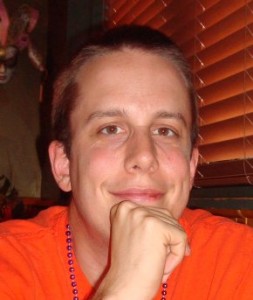Are you a disorganized person? It’s okay to admit it. We’re friends here, and this is a safe place. Here, I’ll go first. I am extremely disorganized. I don’t keep a calendar. My desk at work is a mess. I consider organizing things to be a hassle, and I detest hassle. I’ve long skated by on a better-than-average memory. That document from last week? It’s in the third pile on the right, the one that’s teetering on the edge of falling.
The problem is, as I’ve gotten older, my brain has gotten more full and, well, older. My once-vaunted memory has begun to fail me. Sooner or later I’m going to have to admit that, and start being more organized like a normal person. But probably not.
Still, there’s one organizational decision I’ve made that I don’t regret in the slightest: surrendering my short story submission process to Duotrope. Duotrope is a one-stop-shop website for submissions. Short and long fiction, nonfiction and poetry, Duotrope has you covered. They currently list over 5,000 markets, and continuously update their list as new markets become available. They feature a robust search engine where you can specify which criteria you are looking for in a market. They list acceptance rates, pay scale (or lack thereof), average response speed (or lack thereof) and each market’s page on Duotrope links to the market’s main site.
Simply put, I would be utterly lost without Duotrope.
Every time you submit, you complete an entry with the name of your story (stored in your account database), the venue and the date of submission. Duotrope starts counting days. When you get a response, you update the entry, and the site uses your inputs to improve its own venue database. Better still, they keep records of every story you’ve submitted and which markets you’ve submitted it to. They even compare your acceptance rate to others who have submitted to the same market and give you a sense of how you’re doing.
Just this morning I was thinking to myself that I had a story out on submission. I couldn’t remember which venue or, honestly, which story, but I was fairly certain I’d submitted it awhile ago. Surely, I thought, I should have heard something by now. I logged into my account to see if I’d run over the expected amount of time for this market. Turns out my memory just wasn’t so hot (damn you, age!). I’ve still got sixteen days left until the story has been out past this market’s normal response times.
Now for the bad news. While the site was free when I began using it, eventually soliciting donations was apparently not enough to pay their bills. They have since gone to a pay system, which is unfortunate for those without much disposable income, but at $50.oo a year, I consider it a steal and well worth it. They even offer a free trial! If you do a lot of submitting and have been trying to keep track of it all yourself, I strongly suggest you consider giving them a try.
 Gregory D. Little is the author of the Unwilling Souls, Mutagen
Gregory D. Little is the author of the Unwilling Souls, MutagenDeception, and the forthcoming Bell Begrudgingly Solves It series. As
a writer, you would think he could find a better way to sugarcoat the
following statement, but you’d be wrong. So, just to say it straight, he
really enjoys tricking people. As such, one of his greatest joys in life is
laughing maniacally whenever he senses a reader has reached That
Part in one of his books. Fantasy, sci-fi, horror, it doesn’t matter. They
all have That Part. You’ll know it when you get to it, promise. Or will
you? He lives in Virginia with his wife, and he is uncommonly fond of
spiders.
